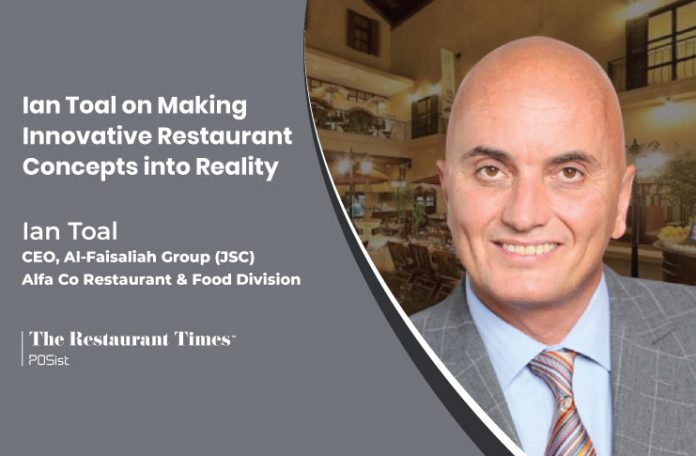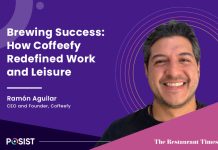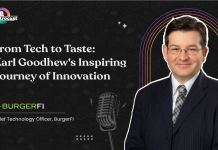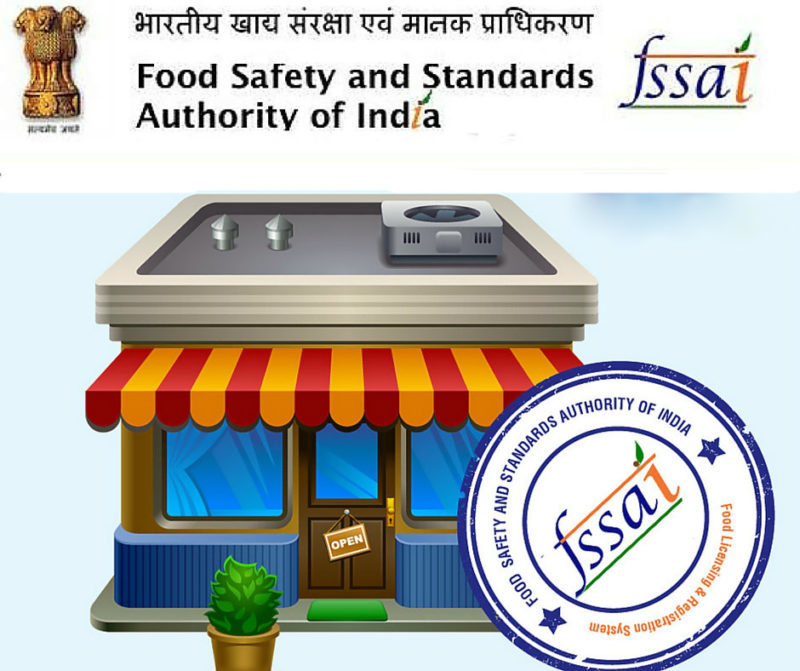Ian is a food veteran with over 30 years of experience in food manufacturing, multi-country supply chains, coffee shops, fine dining, casual dining, QSR, and the home delivery markets. His career has spanned numerous countries and regions, including the USA, Europe, and the GCC. He led more than 40 brands across 600 restaurants in 10 countries.
Until nearly three years ago, Ian was the President of Alshaya Group based in Kuwait, managing the expansions of global brands like The Cheesecake Factory, P.F. Changs, Texas Roadhouse, Shake Shack, Blaze Pizza, Raising Cane’s, Pizza Express, Katsuya, Spontini, Dean & Deluca, Ihop and Pinkberry to name a few. He was voted “World’s Best Restaurant Partner” by the Global Restaurant leadership conference in 2017 /18.
He joined the Riyadh-based Alfa Co. at the beginning of 2019. This dynamic group that operates close to 100 locations across ten restaurants and cloud kitchen concepts is wholly owned by Al Faisaliah Group, a top Saudi corporation led by its president HRH Prince Mohammed Al Faisal. Toal proudly leads award-winning restaurants such as Steak House, Piatto, FireGrill, City Fresh Kitchen, and SteakHouse Burgers.
In Conversation With Ian Toal, CEO, Al-Faisaliah Group (JSC) – Alfa Co. Restaurant and Food Division
In an exclusive conversation with The Restaurant Times, Ian Toal, CEO, Al-Faisaliah Group’s (JSC) – Alfa Co. Restaurant and food division, talks about branding, industry experience, expansion, and more. This is the third in a series of interviews hosted by our guest host, Peggy Li, Managing Partner at SBS Affinity Consultancy, who brings 18 years of experience working with Michelin-starred fine-dining across the UK and the Far East. Peggy has worked with some of the greatest chefs, including Joël Robuchon, Gordon Ramsay, and Atul Kochhar.
Peggy Li – How has your Middle East expedition been so far?
Ian- It’s been fantastic, I have been in the region for seven years now, and when I came here, I had no experience. I have worked in the food and beverage industry and have 30+ years with coffee shops, restaurants, and almost every cuisine in the industry.
I have also worked with manufacturing, supply chains with Food Broadline giant Cisco. The journey of Alfa Co began here in Saudi Arabia, and it’s the greatest dining brand. We have also renovated a chain of Italian restaurants called Piatto, which is hugely successful here. Alshaya was mainly a franchise brand, so we had Cheesecake Factory, Raising Canes, and a Shake Shack. Here, it’s a little bit different since they are our own brands, and one of the attractions of coming here was that Saudi Arabia is best for future growth and has the largest population in the region.
People love to eat out here, but working with my brands is a massive draw for me, as I can change and redesign menus. It really is quite an exciting marketplace to be in, and the last 20 months have been very challenging with Covid, and then we had the second lockdown in February and March in 2021.
The first lockdown was 106 days, and the second one was 30 days, so it’s challenging to shut down and only run deliveries entirely. Even with delivery, it’s difficult to get drivers because drivers couldn’t get permits to be out that easily.
Peggy Li- As per the brands you have mentioned, please walk us through the different brands and ideas you have had?
Ian- Steak House chain has been going on a fantastic journey for 30-years here in the Kingdom, and the first customers were from Saudi Arabia back in the day. It’s a great brand that attracts great businesses; it’s family-centric, and I am very proud to have that brand.
Piatto is the greatest Italian chain here and has been thriving for 10-years. When I redesigned that restaurant 2-years ago in Riyadh, I had the challenge of making that brand new again that will make people come out for different occasions.
Hence, I created seven chapters or themes that were designed for different experiences. We designed brunch outside, had a veranda upstairs for a more romantic setting. We had a library with books to read and for the people who want their own time.
Since the first and second lockdown, things have changed. We have a new menu, a new look and feel, and secondly, different experiences depending on the size of the restaurant. We recently opened a flagship branch in Jeddah with a coastal theme. Fire grill is more edgy; we have bowls, quesadillas, tacos, healthy and Gen-Z type of food.
The other thing I did in the pandemic was to open cloud kitchens; we now have cloud bands operating around 30 new locations and a flagship business in Riyadh. We have a new spinoff brand called the Steak House Burgers, a trendy place with graffiti on walls, very urban and niche. The other thing I did during the pandemic was to open cloud kitchens; we now have cloud brands operating around 30 new locations, and we have a flagship business in Riyadh. In addition, we have Curry Club, which serves Indian street food, Zahr Alnarenj specializing in Lebanese recipes, and Uncle Moe’s, which is all about BBQs.
Peggy Li- What are your tips on a well-designed restaurant?
Ian- I think from the 90s, people went out for a meal because it was convenient even if the meal wasn’t great. People’s expectations today have gone so far that people expect an excellent dinner wherever they go. So the food has to be of top quality and authentic. The Italian brand that I had was very American and not Italian, so when I designed my restaurant with the architect, I thought about the practicality of people who will come out for an occasion.
I think people want authenticity but also experience. So, you have to think about all the occasions that your guest may come out for. The added problem is how do you do that and remain profitable. Our business during the lockdown took a huge hit, but balancing back to profitability has been an enormous challenge. Our restaurants are currently the most hygienic, and we have to operate with social distancing and QR codes, all of this comes at a cost. Hence, you have to come up with creative options. I want people to go and think, “Wow, I feel at home here.”
We have to operate with three-meter table spacing. We have to operate with QR code menus, which is a problem. We have to run with every single knife fork that has to be sterilized and wrapped in bags. So naturally, all of that comes at a cost. This was probably one of the most sensible countries worldwide when a pandemic took hold in Saudi Arabia, but it was controlled unbelievably well by the government and the Royal family here.
So, I’m very proud to operate in a country that thought through many pandemic issues and put things in place, but it also meant we had to change the way we do things. Our cleaning bills have gone up. Our packaging bills have gone up. Our delivery business has grown 150% — from relatively minor to a substantial part of our business.
But going back to your question about design, I always think of guest experience first. I believe in practicality as well, but I also just want people to come thinking, I feel very much at home here. I feel very comfortable. I can choose different places to sit in the restaurant for other occasions. I can sit in different parts, even though the menu is the same. It feels like a completely different experience.
Peggy Li- How is the casual dining and delivery business space doing for you? And how much further do you see the delivery business growing in the kingdom?
Ian- The delivery business is growing, and it has enormous value. But it’s not cheap. It costs you 20% more to do delivery. Plus, the costs could be even more in some places. I do believe delivery will keep growing. I do think one day getting a delivery will cost you more than dining in. So, I guess those days manifest here in the region and worldwide because there’s a cost to doing this. I think it will continue to grow, and you have to stay relevant and make sure that your food delivers.
If it’s supposed to be hot, it has to arrive hot. It’s supposed to be cold. It has to come cold. Another good example is when we went into the pandemic; we only delivered via our third-party aggregators. Still, now we provide via our applications for every one of our brands. So, we have an app for all our brands where you can order directly and get it delivered for you now. So balancing your digital journey and your digital portfolio is very important to a company’s future. We’ve been working very hard to digitize the whole experience for people to make it better, smoother, and faster.
The Steak House has a slightly more traditional customer base. So, when I’m redesigning steak, which we’re in the process of doing right now, I’m still trying to make sure that I don’t lose what the loyal guests want. Boundaries are very important in our industry because we don’t just serve food since we’re in the long run hospitality. We serve a reason to go out. And, if you think, coffee shops in the kingdom are possibly wine bars in the west; it’s a place to hang out. So, it has to be somewhere you want to hang out. It has to be somewhere you want to be. It has to be somewhere that you feel comfortable in that environment.
Peggy: Technology seems to have changed restaurant operations across the board, and I’m curious if the design has seen significant changes too?
Ian: We have to think about what the future holds for technology? Again? I don’t know every answer, but I do know that in FireGrill, for example, people want digital menus. I do know that people want to be able to order their food from their car.
Customers want things NOW, and they want it faster, or they want it fresh. I’m spending a disproportionate amount of our money on digitizing our whole backend. We’re changing all of our POS systems to be more digital. We’re ensuring that when the order goes from the server to the kitchen, it goes automatically, not on a bit of paper. In the short term, it kind of feels like, wow, that’s a considerable investment. But if you’re not at the forefront of this, you’re not in it at all! When do we get our money back?
Peggy: Let’s talk about driving growth in Saudi Arabia; how has the last two years been for you at Alfa Co. You joined the business when the industry was going through significant shifts; how did you keep the business growing despite the challenges.
Ian: So, one of the things we did was put a delivery pickup window in every one of our restaurants. So drivers no longer need to come in., All they’ll need to do is show up, press a buzzer, and the food’s passed out the window. And I think just ensuring about all these things in the modern world we live in makes a huge difference.
They make a massive difference to the comfort of our guests. And, you know, people are nervous even today like, “oh, should I go out? Should I not go out?” But where they are going out, they feel safe. They think it’s clean. They think it’s the right environment. I’m not sure if we will ever see the end of COVID, but certainly, we’ve had to change the way we’ve done things.
A lot of people let all their staff go as that was the easy thing to do. It saved them a fortune because you didn’t have to pay them. But we didn’t do that. We kept our staff on and made some tough decisions. We all took voluntary pay cuts during the first lockdown. We were also able to open every single restaurant back in June when the first lockdown ended. We were the first people to own every restaurant on day one because we still have the people with us. It cost us a lot of money to do that, but having a team with experience and keeping them intact during the pandemic was key. I think it has created a great camaraderie in our business. And, after all, it’s hospitality, we need good people to give good experiences.
Peggy: Do you see an increased demand for any unique concept of restaurant or cuisines in Saudi? Could you share a few examples?
Ian: The appetite for fine dining is very high, but it’s always going to be a niche customer. I think fine dining in Saudi Arabia is excellent because it raises the standards and expectations. But I think there’s a massive appetite for healthier food for great flavors.
When they say healthy, they want healthy food items filled with flavor. Sometimes healthy just means it has no taste. It’s just lettuce. I think healthy food with flavor is a huge expectation, but I think there’s a massive appetite for many cuisines.
Peggy: What is your take on the business model of the cloud kitchen in a long run in the kingdom?
Ian: For me, the perfect model is a hybrid. It’s not just a pure cloud kitchen for me. The ideal model is a food hub with a kitchen on the back and another in the long-run delivery brands. That, for me, is my vision of what is cool for this digital delivery space in the future. I think we are yet to see it fully evolve. The biggest challenge for standalone cloud kitchens in the long term is how do they make money? That’s the reality. And I think that’s why I predict one-day delivery brands will cost you more than dine-in because it’s the macroeconomics that has to be paid for somewhere.
So I think the profitization of this sector will also have a significant effect on the speed of growth of this sector. It will continue to grow whether delivery and digital food are increasing at 10% globally every year. Whether it be via cloud kitchen or whether it be delivered from your restaurants, it’s growing. Will it ever slow down? Yes, I think it will because there’s a natural curve to all business growths, but it has so much future in it as well. How do you make sure that it remains fresh and relevant? These are all challenges, and they all come with a cost. So we’ve got to make sure we balance our business to make sure we have enough money to do all these beautiful things.
Peggy: What would be your golden piece of advice for the budding entrepreneurs who want to enter the industry?
Ian: I wish every person in our fantastic industry all the luck in the world, but I’m a great believer that the harder you work, the luckier you get. There would be times when you think, “am I ever going to make money? Am I ever going to make progress?” But this is a game that we are in because we choose to be in it. And if you decide to be in it, you must understand that there will be good times and bad.
For the full interview, please watch the video between Peggy and Ian

















